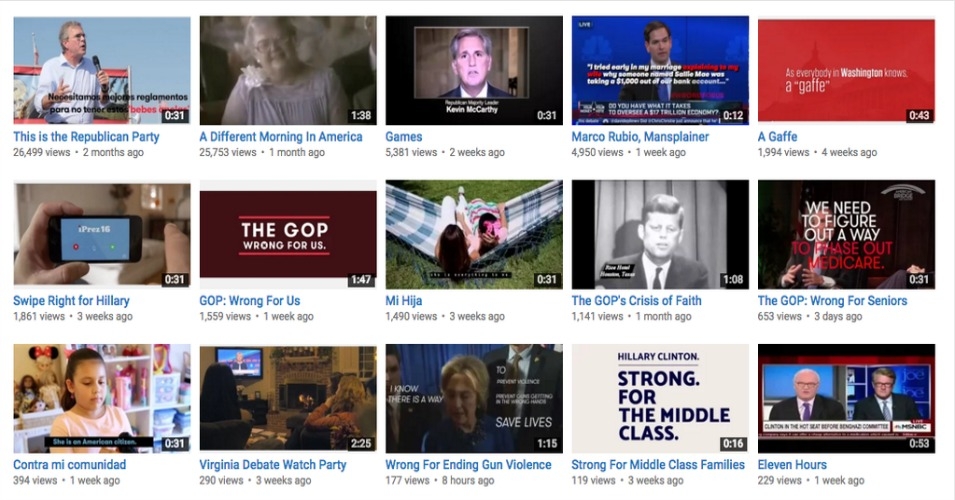While there’s more to do, unanimous vote will help expose “vital information about who’s seeking to influence our elections.”
By Deirdre Fulton, staff writer for Common Dreams. Published 1-28-2016

The 2016 election will see an expected $4.4 billion in political ad spending on TV this year. (Image: @SunFoundation/Twitter)
Amid what is predicted to be the most expensive campaign cycle ever, the Federal Communications Commission (FCC) on Thursday voted to make more information about purchases of political advertising available online.
Campaign finance reform advocates applauded the development, but said there was much further to go.
“These political files contain valuable information about the ads, such as how much they cost and when they ran,” the Sunlight Foundation said following the vote. “Having the political ad files online is important: In some cases they provide the only public information available on groups that are thinly disguised as nonprofit ‘social welfare’ organizations but are, in fact, major campaign players.”
As a result of Thursday’s 5-0 vote, cable TV, satellite, and radio stations will soon have to start posting information online about the political campaigns and outside groups buying advertising on their platforms—bringing them in line with requirements for TV broadcasters, which were the first to be required to maintain these records in an FCC database during the 2012 election cycle.
Broadcasters have long kept “public files” of such “community-relevant information,” as FCC Chairman Tom Wheeler noted earlier this month. But there was a “catch,” he said. “It was maintained only on paper in file cabinets at the actual radio and TV stations.” And so in 2012, “the FCC adopted rules moving television station’s paper public files online, in a central, Commission-hosted database rather than maintaining paper files locally at their main studios.”
For that reason, extending these requirements to cable, satellite and radio was “a no-brainer,” the Campaign Legal Center’s Meredith McGehee wrote on Wednesday.
The Hill reports that the new requirements will go into effect “after the Office of Management and Budget signs off on the rules, with exceptions for operators with a small number of providers. Only new files will have to be posted. The FCC said the first disclosures are expected to go up in three to six months.”
But transparency groups demanded stronger action. In particular, they have repeatedly called for the FCC to require broadcasters to provide for in-ad disclosure of the true sponsors of political ads—something Thursday’s order does not address.
“The proliferation of advertisements run by outside groups that legally are able to obscure sponsors’ identities makes it increasingly important that each ad’s sponsors be publicly disclosed,” the Center for Responsive Politics declared leading up to the vote.
Former FCC Commissioner and Common Cause special adviser Michael Copps called Thursday’s vote “one small step for man,” before adding, “using FCC authority to demand accountability in political ads would be one giant leap for mankind. Let’s get this done now.”
What’s more, Bloomberg reports, the FCC did not include any requirement for the use of machine-readable data, creating a challenge for those who seek to parse and convey the information within the files.
“The order requires the disclosure of ad spending on behalf of candidates for local, state and federal public office on an FCC website but doesn’t specify how the data must be reported,” writes Bloomberg‘s Todd Shields. “Information may be entered in a hodgepodge of formats, possibly with hand-scribbled amendments, leaving a daunting task for analysts, journalists and others collating totals and divining trends.”
Still, according to the Sunlight Foundation, Thursday’s ruling “is a significant step towards transparency for political ads, providing vital information about who’s seeking to influence our elections.”
McGehee added:
This new rule drags FCC regulations governing the public file into the 21st Century and ensures that all media outlets covered by the Communications Act will make the information required in the public file more readily available to the public. For too long the public files for these media outlets have been anything but public despite technology that makes the process cheap and easy through means already being utilized by the outlets.
“The logical next step,” she continued, “is for the Commission to ensure that the public file information uploaded to the FCC database is in machine-readable format, instead of PDFs.”

